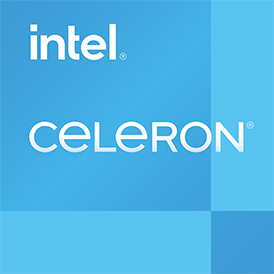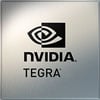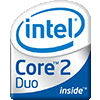
Intel Celeron 1000M Benchmark, Test and specs
Last updated:
The Intel Celeron 1000M has 2 cores with 2 threads and is based on the 3. gen of the Intel Celeron series. The processor uses a mainboard with the PGA 988 socket and was released in Q1/2013. The Intel Celeron 1000M scores 360 points in the Geekbench 5 single-core benchmark. In the Geekbench 5 multi-core benchmark, the result is 650 points.

| Name: | Intel Celeron 1000M |
|---|---|
| Family: | Intel Celeron (165) |
| CPU group: | Intel Celeron 1000 (9) |
| Architecture: | Ivy Bridge U |
| Segment: | Mobile |
| Generation: | 3 |
| Predecessor: | -- |
| Successor: | -- |
CPU Cores and Base Frequency
The Intel Celeron 1000M has 2 CPU cores and can calculate 2 threads in parallel. The clock frequency of the Intel Celeron 1000M is 1.80 GHz. The number of CPU cores greatly affects the speed of the processor and is an important performance indicator.
| CPU Cores / Threads: | 2 / 2 |
|---|---|
| Core architecture: | normal |
| Cores: | 2x |
| Hyperthreading / SMT: | No |
|---|---|
| Overclocking: | No |
| Frequency: | 1.80 GHz |
| Turbo Frequency (1 Core): | -- |
| Turbo Frequency (2 Cores): | -- |
Internal Graphics
The Intel Celeron 1000M has integrated graphics, called iGPU for short. Specifically, the Intel Celeron 1000M uses the Intel HD Graphics (Ivy Bridge GT1), which has 48 texture shaders and 6 execution units. The iGPU uses the system's main memory as graphics memory and sits on the processor's die.
| GPU name: | Intel HD Graphics (Ivy Bridge GT1) |
|---|---|
| GPU frequency: | 0.65 GHz |
| GPU (Turbo): | 1.00 GHz |
| Compute units: | 6 |
| Shader: | 48 |
| Hardware Raytracing: | No |
| Release date: | Q4/2012 |
| Max. displays: | 3 |
|---|---|
| Generation: | 7 |
| Direct X: | 11.0 |
| Technology: | 22 nm |
| Max. GPU Memory: | 2 GB |
| Frame Generation: | No |
Hardware codec support
A photo or video codec that is accelerated in hardware can greatly accelerate the working speed of a processor and extend the battery life of notebooks or smartphones when playing videos.
| h265 / HEVC (8 bit): | No |
|---|---|
| h265 / HEVC (10 bit): | No |
| h264: | Decode / Encode |
| VP8: | No |
| VP9: | No |
| AV1: | No |
|---|---|
| AVC: | Decode / Encode |
| VC-1: | Decode |
| JPEG: | Decode |
Memory & PCIeThe processor can use up to 32 GB memory in 2 (Dual Channel) memory channels. The maximum memory bandwidth is 25.6 GB/s. The memory type as well as the amount of memory can greatly affect the speed of the system. |
|
| Memory type: | Memory bandwidth: |
|---|---|
| DDR3-1600 | 25.6 GB/s |
| Max. Memory: | 32 GB |
| Memory channels: | 2 (Dual Channel) |
| ECC: | No |
| PCIe: | 2.0 x 16 |
| PCIe Bandwidth: | 8.0 GB/s |
Thermal ManagementThe thermal design power (TDP for short) of the processor is 35 W. The TDP specifies the necessary cooling solution that is required to cool the processor sufficiently. The TDP usually gives a rough idea of the actual power consumption of the CPU. |
|
|---|---|
| TDP (PL1 / PBP): | 35 W |
| TDP (PL2): | -- |
| TDP up: | -- |
| TDP down: | -- |
| Tjunction max.: | 105 °C |
Technical details
The Intel Celeron 1000M is made in 22 nm. The smaller the manufacturing process of a CPU, the more modern and energy-efficient it is. Overall, the processor has 2.00 MB cache. A large cache can greatly speed up the processor's speed in some cases such as games.
| Technology: | 22 nm |
|---|---|
| Chip design: | Monolithic |
| Socket: | PGA 988 |
| L2-Cache: | -- |
| L3-Cache: | 2.00 MB |
| AES-NI: | Yes |
| Operating systems: | Windows 10, Linux |
| Virtualization: | VT-x, VT-x EPT, VT-d |
|---|---|
| Instruction set (ISA): | x86-64 (64 bit) |
| ISA extensions: | SSE4.1, SSE4.2 |
| Release date: | Q1/2013 |
| Release price: | -- |
| Part Number: | -- |
| Documents: | Technical data sheet |
Rate this processor
Benchmark results

The benchmark results for the Intel Celeron 1000M have been carefully checked by us. We only publish benchmark results that have been created by us or that have been submitted by a visitor and then checked by a team member. All results are based on and fullfill our benchmark guidelines.
Geekbench 5, 64bit (Single-Core)
Geekbench 5 is a cross plattform benchmark that heavily uses the systems memory. A fast memory will push the result a lot. The single-core test only uses one CPU core, the amount of cores or hyperthreading ability doesn't count.

|
Samsung Exynos 8895
8C 8T @ 2.30 GHz |
||

|
AMD A6-9210
2C 2T @ 2.80 GHz |
||

|
AMD Phenom II X4 820
4C 4T @ 2.80 GHz |
||
|
|
Intel Celeron 1000M
2C 2T @ 1.80 GHz |
||

|
AMD Athlon II X3 435
3C 3T @ 2.90 GHz |
||

|
AMD Athlon II X4 630
4C 4T @ 2.80 GHz |
||

|
Intel Pentium J4205
4C 4T @ 2.60 GHz |
||
Geekbench 5, 64bit (Multi-Core)
Geekbench 5 is a cross plattform benchmark that heavily uses the systems memory. A fast memory will push the result a lot. The multi-core test involves all CPU cores and taks a big advantage of hyperthreading.

|
Intel Atom C3338
2C 2T @ 2.20 GHz |
||

|
AMD A8-4555M
4C 4T @ 2.40 GHz |
||

|
Intel Core i3-3229Y
2C 4T @ 1.40 GHz |
||
|
|
Intel Celeron 1000M
2C 2T @ 1.80 GHz |
||

|
Intel Celeron N2920
4C 4T @ 2.00 GHz |
||

|
Intel Atom x5-Z8350
4C 4T @ 1.92 GHz |
||

|
AMD A4-3400
2C 2T @ 2.70 GHz |
||
Geekbench 6 (Single-Core)
Geekbench 6 is a benchmark for modern computers, notebooks and smartphones. What is new is an optimized utilization of newer CPU architectures, e.g. based on the big.LITTLE concept and combining CPU cores of different sizes. The single-core benchmark only evaluates the performance of the fastest CPU core, the number of CPU cores in a processor is irrelevant here.

|
MediaTek MT8183
8C 8T @ 2.00 GHz |
||

|
Intel Core i3-3217U
2C 4T @ 1.80 GHz |
||

|
Intel Pentium 3558U
2C 2T @ 1.70 GHz |
||
|
|
Intel Celeron 1000M
2C 2T @ 1.80 GHz |
||

|
MediaTek Kompanio 500
8C 8T @ 2.00 GHz |
||

|
MediaTek Helio P60
8C 8T @ 2.00 GHz |
||

|
NVIDIA Tegra X1
8C 8T @ 2.00 GHz |
||
Geekbench 6 (Multi-Core)
Geekbench 6 is a benchmark for modern computers, notebooks and smartphones. What is new is an optimized utilization of newer CPU architectures, e.g. based on the big.LITTLE concept and combining CPU cores of different sizes. The multi-core benchmark evaluates the performance of all of the processor's CPU cores. Virtual thread improvements such as AMD SMT or Intel's Hyper-Threading have a positive impact on the benchmark result.

|
Intel Pentium N3520
4C 4T @ 2.42 GHz |
||

|
Intel Celeron J3160
4C 4T @ 2.24 GHz |
||

|
Intel Pentium J2850
4C 4T @ 2.67 GHz |
||
|
|
Intel Celeron 1000M
2C 2T @ 1.80 GHz |
||

|
Intel Core i3-2375M
2C 4T @ 1.50 GHz |
||

|
Intel Core i3-2377M
2C 4T @ 1.50 GHz |
||

|
Intel Atom x5-Z8500
4C 4T @ 2.24 GHz |
||
iGPU - FP32 Performance (Single-precision GFLOPS)
The theoretical computing performance of the internal graphics unit of the processor with simple accuracy (32 bit) in GFLOPS. GFLOPS indicates how many billion floating point operations the iGPU can perform per second.

|
Intel Celeron G1610
Intel HD Graphics (Ivy Bridge GT1) @ 1.05 GHz |
||

|
Intel Pentium G2020
Intel HD Graphics (Ivy Bridge GT1) @ 1.05 GHz |
||

|
MediaTek Helio P70
ARM Mali-G72 MP3 @ 0.90 GHz |
||
|
|
Intel Celeron 1000M
Intel HD Graphics (Ivy Bridge GT1) @ 1.00 GHz |
||

|
UNISOC T616
ARM Mali-G57 MP1 @ 0.75 GHz |
||

|
Intel Pentium 2117U
Intel HD Graphics (Ivy Bridge GT1) @ 1.00 GHz |
||

|
Intel Pentium 997
Intel HD Graphics (Sandy Bridge GT1) @ 1.00 GHz |
||
Estimated results for PassMark CPU Mark
Some of the CPUs listed below have been benchmarked by CPU-monkey. However the majority of CPUs have not been tested and the results have been estimated by a CPU-monkey’s secret proprietary formula. As such they do not accurately reflect the actual Passmark CPU mark values and are not endorsed by PassMark Software Pty Ltd.

|
AMD A4-3400
2C 2T @ 2.70 GHz |
||

|
Intel Pentium B970
2C 2T @ 2.30 GHz |
||

|
Intel Core2 Duo E7500
2C 2T @ 2.93 GHz |
||
|
|
Intel Celeron 1000M
2C 2T @ 1.80 GHz |
||

|
AMD Athlon II X2 245
2C 2T @ 2.90 GHz |
||

|
Intel Pentium E5700
2C 2T @ 3.00 GHz |
||

|
Intel Atom E3845
4C 4T @ 1.91 GHz |
||
CPU-Z Benchmark 17 (Multi-Core)
The CPU-Z benchmark measures a processor's performance by measuring the time it takes the system to complete all benchmark calculations. The faster the benchmark is completed, the higher the score.

|
AMD A4-5000
4C 4T @ 1.50 GHz |
||

|
Intel Celeron 3205U
2C 2T @ 1.50 GHz |
||

|
Intel Pentium 2117U
2C 2T @ 1.80 GHz |
||
|
|
Intel Celeron 1000M
2C 2T @ 1.80 GHz |
||

|
Intel Core2 Duo E4500
2C 2T @ 2.20 GHz |
||

|
Intel Pentium 3558U
2C 2T @ 1.70 GHz |
||

|
Intel Pentium T4400
2C 2T @ 2.20 GHz |
||
Benchmarks

Geekbench 5 (SC)
2,488 entries
2,488 entries

Geekbench 5 (MC)
2,461 entries
2,461 entries

Geekbench 6 (SC)
1,754 entries
1,754 entries

Geekbench 6 (MC)
1,702 entries
1,702 entries

FP32 SP (iGPU)
2,026 entries
2,026 entries

PassMark CPU-Mark
2,391 entries
2,391 entries

CPU-Z Benchmark 17 (MC)
733 entries
733 entries

Geekbench 3 (SC)
942 entries
942 entries

Geekbench 3 (MC)
938 entries
938 entries
Popular comparisons
back to index







